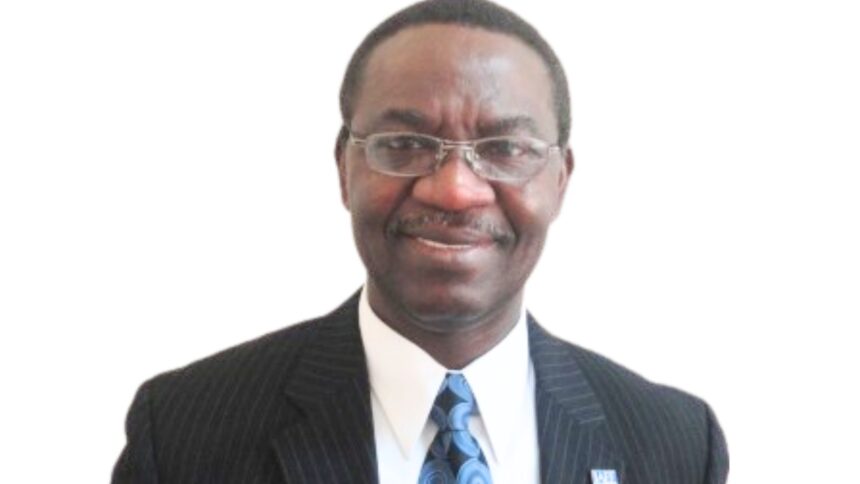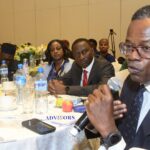…warns against political interference in PIA implementation, cites risks to fiscal stability, regulatory autonomy
Oredola Adeola
Professor Omowumi Iledare, has warned that the continued absence of duly constituted Boards for the Nigerian Upstream Petroleum Regulatory Commission (NUPRC) and the Nigerian Midstream and Downstream Petroleum Regulatory Authority (NMDPRA), in breach of the Petroleum Industry Act (PIA) 2021, undermines the agencies’ autonomy and erodes investor confidence.
Professor Emeritus of Petroleum Economics made this known in his briefing while addressing the National Assembly address during the 2025 Inaugural Annual Downstream Petroleum Week, organised by the House of Representatives Committee on Petroleum Resources (Downstream), in Abuja.
Speaking on the topic, “Refining the PIA: Legislative Solutions for a Sustainable Downstream Sector”, the Principal Facilitator, FUPRE Energy Business School said, “Institutions cannot thrive on personality; they require structure.
“Without Boards, regulatory independence becomes vulnerable, and policy coherence is easily compromised,” he said.
He therefore commended the visible progress achieved through the NUPRC and NMDPRA, particularly their strides in transparency, digital monitoring, and operational accountability.
Highlighting the transformative gains of the PIA’s fiscal framework, which streamlined hydrocarbon taxation, clarified cost recovery, and rationalized royalty structures, Professor Iledare cautioned that the fiscal stability achieved under the Act must not be compromised by political expediency.
He added that the Act has restored a measure of investor confidence that had been lost under years of fiscal ambiguity.
Iledare said, “Constant reinterpretation of the Act, or calls for amendment before full implementation, reintroduces the very uncertainty the PIA was designed to remove.
“Investors, do not demand perfection; they demand predictability. Reform must evolve through evidence, not agitation,” he said.
He also reiterated that fiscal design is not only about revenue generation but about intergenerational equity — ensuring that the resources of today create enduring value for the generations of tomorrow.
Speaking on performance of the PIA in the upstream sector, he stated that the improved security collaboration and fiscal clarity are restoring confidence, thus gradually recovering production to nearly 1.6 million barrels daily, yet the cost of production remains unacceptably high.
In the midstream sector, Iledare said the emergence of the Midstream and Downstream Gas Infrastructure Fund (MDGIF) has created a strategic lever for gas commercialization.
Nigeria’s pivot toward gas as a transition fuel, he noted, is evident in new infrastructure projects, virtual pipeline systems, and industrial gas supply frameworks.
“Gas,” he remarked, “is not merely a transition fuel; it is the bridge between energy poverty and energy prosperity.”
He said the downstream segment, is witnessing long-overdue liberalization with the entrance of the Dangote Refinery and other modular operators signals a new competitive frontier.
He cautioned that liberalization must not degenerate into monopoly, adding that a true deregulation, must reflect “competition with compassion” — balancing market freedom with fairness to consumers.
The Past President of the International Association for Energy Economics (IAEE, 2014) reminded policymakers that the success of the PIA cannot be separated from the competence, integrity, and discipline of those charged with executing it.
“No statute, however well-written, can outperform the character of its implementers,” he said pointedly.
The PIA, he emphasized, is not an end in itself, but a beginning — a framework for Nigeria to rebuild confidence, redefine governance, and reposition its petroleum industry as a catalyst for sustainable development.
He urged both lawmakers and policymakers to focus less on what the law promises and more on what it performs.
“The PIA’s journey from policy to promise must now yield the harvest of posterity, not applause,” he declared.
“Uncertainty is not destiny. The true test of governance is not the passage of a law but the discipline to implement it faithfully,” Executive Director of the Emmanuel Egbogah Foundation, Abuja said.




